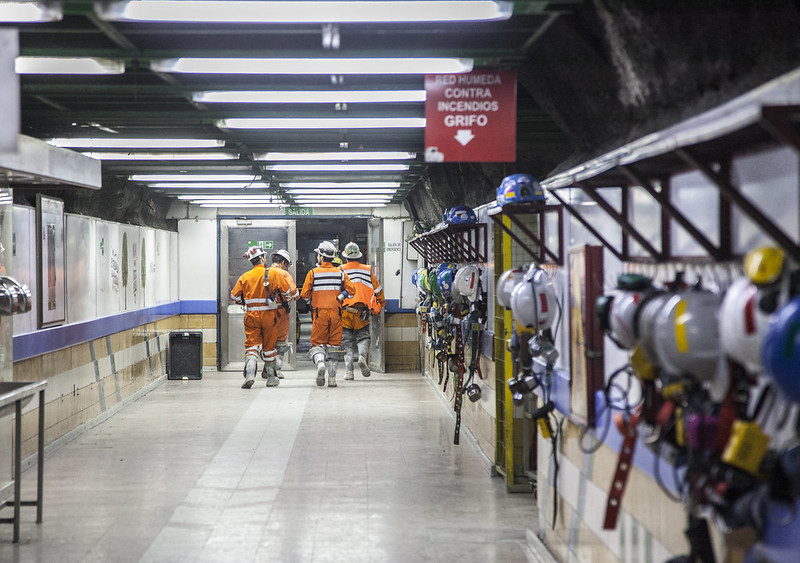More copper workers are falling ill in the world’s top producer

The latest tally of Covid-19 cases among Codelco workers shows why the world’s biggest copper producer is stepping up measures to contain the spread.
Of the state-owned company’s 71,000 total workforce, 1,951 people have been diagnosed with the disease, according to data compiled by the Federation of Copper Workers union. Santiago-based Codelco declined to comment on those figures.
The El Teniente mine in central Chile has been hardest hit with 664 cases through Thursday, followed by Chuquicamata in the north with 473, the Federation data show. Based on those numbers, the company-wide infection rate has risen to 2.7%. Chilean Mining Minister Baldo Prokurica said in Thursday that the industry-wide rate in Chile was about 1%.
Codelco this week shifted to a 14-days-on-14 days-off roster at El Teniente, its largest and most profitable mine. At Chuquicamata, it’s halting all smelting and sharply reducing refining in a plan that will mean 400 fewer workers.
The company is engaged in a balancing act of trying to keep workers safe from a disease that’s surging in Chile while at the same time continuing to churn out the copper needed to finance state spending as the economy deteriorates.
Until now, Chilean mines have managed to maintain production with skeleton crews by delaying maintenance and stripping. The Chuquicamata cutbacks gave traders ammunition to bet on a further recovery in prices amid strong Chinese demand. On Friday, copper traded 1.1% higher at $5,957 a ton in London.
At Chuquicamata, Codelco will focus on production at the mine and concentrator areas. And the concentrate market is where the shortages are given mines elsewhere, including Peru, aren’t operating at capacity, with treatment and refining charges weakening as a result. Concentrates contain about 30% copper and are used as raw materials in smelting.
Unions have called for all Chuquicamata operations to be shut down for two weeks to do a thorough cleaning.
In the year through April, El Teniente produced about 139,000 tons of copper, according to government data, making it Chile’s largest mine after Escondida and Collahuasi.
(By Jackie Davalos and James Attwood)
{{ commodity.name }}
{{ post.title }}
{{ post.date }}




Comments